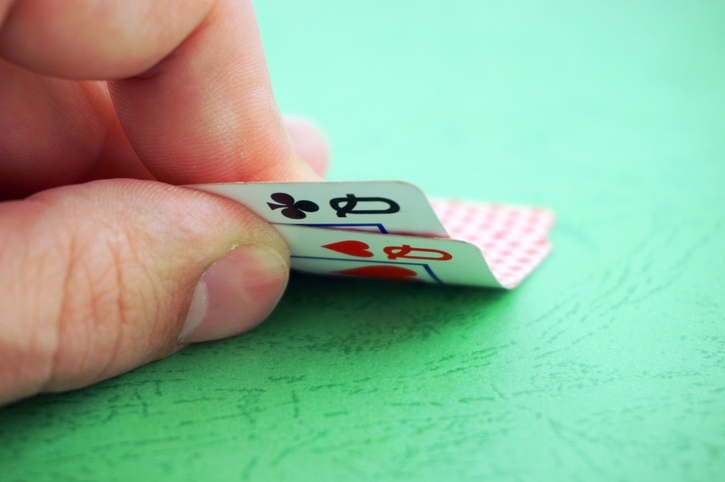- 3 Sep 2025

In poker, pocket pairs can be powerful hands when played correctly, but not all pocket pairs are created equal. The lowest pocket pair in poker refers to a pair of twos, commonly called “deuces.” Although this is the weakest possible pocket pair, it can still be a valuable hand in certain situations. In this article, we’ll dive into the significance of the lowest pocket pair in poker, how to play it strategically, and when it can be a game-changer.
Before discussing the lowest pocket pair, it’s important to understand what a pocket pair is. A pocket pair occurs when a player is dealt two cards of the same rank in the hole (the cards dealt face down to each player). Pocket pairs can range from the highest pair, which is a pair of aces, down to the lowest pair, which is a pair of twos (deuces).
Pocket pairs are generally considered strong starting hands in poker because they already form a pair, one of the most basic and common winning combinations in the game. However, the strength of the pocket pair depends on its ranking and how it stacks up against other possible hands.
If you’re new to poker and want to understand the basics, you can learn more in this detailed guide: How to Play Poker.
The lowest pocket pair in poker is a pair of twos, also known as “deuces.” In numerical terms, the value of the cards in this hand is the lowest possible, making it less likely to beat higher pocket pairs or stronger hands such as a straight, flush, or full house.
While pocket deuces are the weakest pair you can have pre-flop, they still hold potential. The key to playing this hand well is understanding how to navigate different situations with such a low pair.
Pocket deuces may be weak compared to other pocket pairs, but that doesn’t mean they should always be folded. Here are some strategies to consider when playing the lowest pocket pair:
A key reason why many players choose to play pocket deuces is the potential to hit a “set” on the flop. A set occurs when one of your hole cards matches a card on the board, giving you three of a kind. For pocket deuces, this means hitting a third two on the flop.
Sets are generally strong hands that can beat overpairs, straights, and even two-pair hands, especially if the board is uncoordinated. Because sets are often well-concealed, you can potentially win a big pot if your opponents don’t see the set coming.
Despite the potential to hit a set, you should be willing to fold pocket deuces if the situation isn’t favorable. If you don’t hit a set on the flop and the board comes out with higher cards, your pocket pair will likely be dominated by your opponents’ hands. Overcards on the flop (such as a king, queen, or ace) will often signal danger.
When dealt pocket deuces, deciding whether to limp (just call the big blind) or raise pre-flop depends on your table position and the dynamics of the game. Limping can be a safer way to see the flop without risking too many chips, while raising can help build the pot if you’re aiming to hit a set.
Although pocket deuces aren’t usually strong enough to bluff with post-flop, there are situations where you can turn them into a bluff. For example, if the flop comes with high cards and your opponents show weakness, you can make a bet representing a stronger hand.
However, be cautious with this approach, as experienced players may catch on, especially if you’re frequently playing low pocket pairs aggressively without hitting a set.
Playing the lowest pocket pair in poker comes with its advantages and disadvantages, and understanding both can help you make better decisions at the table.
The lowest pocket pair in poker, pocket deuces, can still be a valuable hand if played strategically. While it’s the weakest pocket pair, its potential to hit a set can turn it into a powerful hand capable of winning big pots. However, knowing when to fold, limp, or raise with pocket deuces is crucial to maximize your chances of success. By carefully assessing the table dynamics and understanding the strength of your hand in different situations, you can play the lowest pocket pair effectively and profitably.